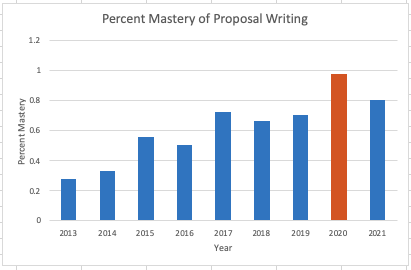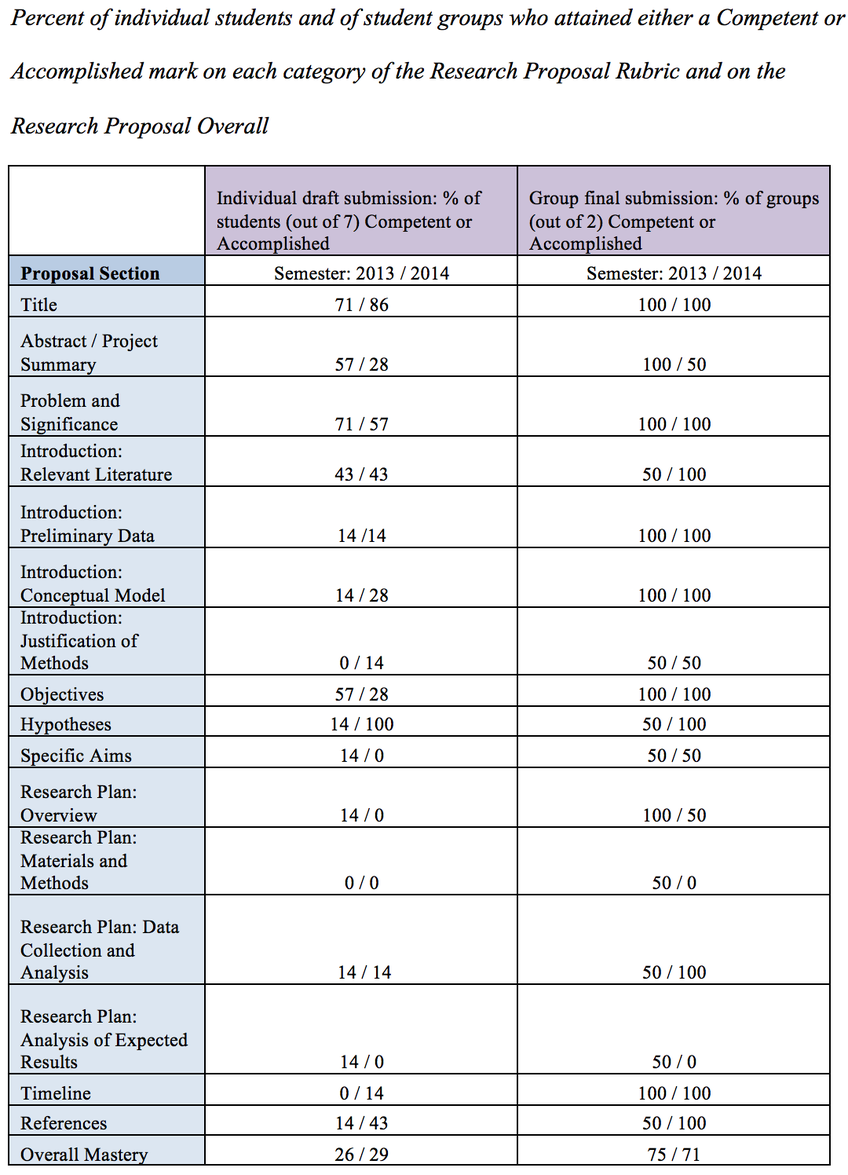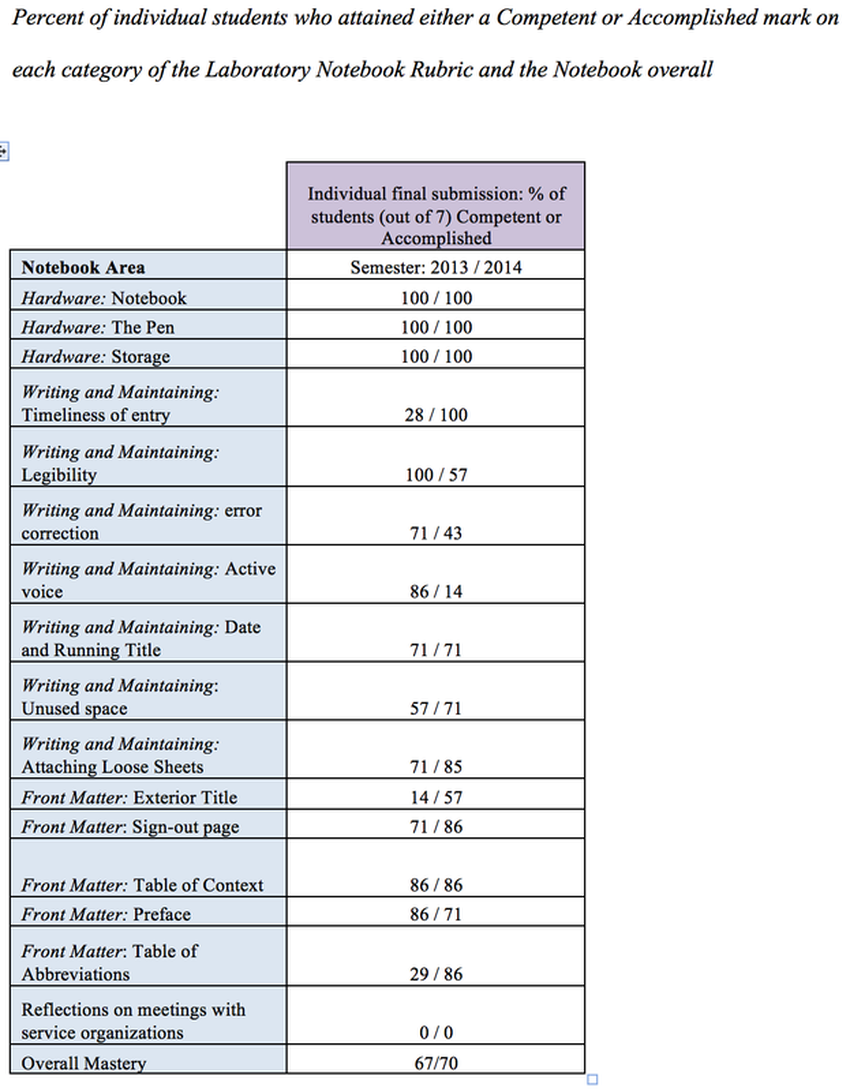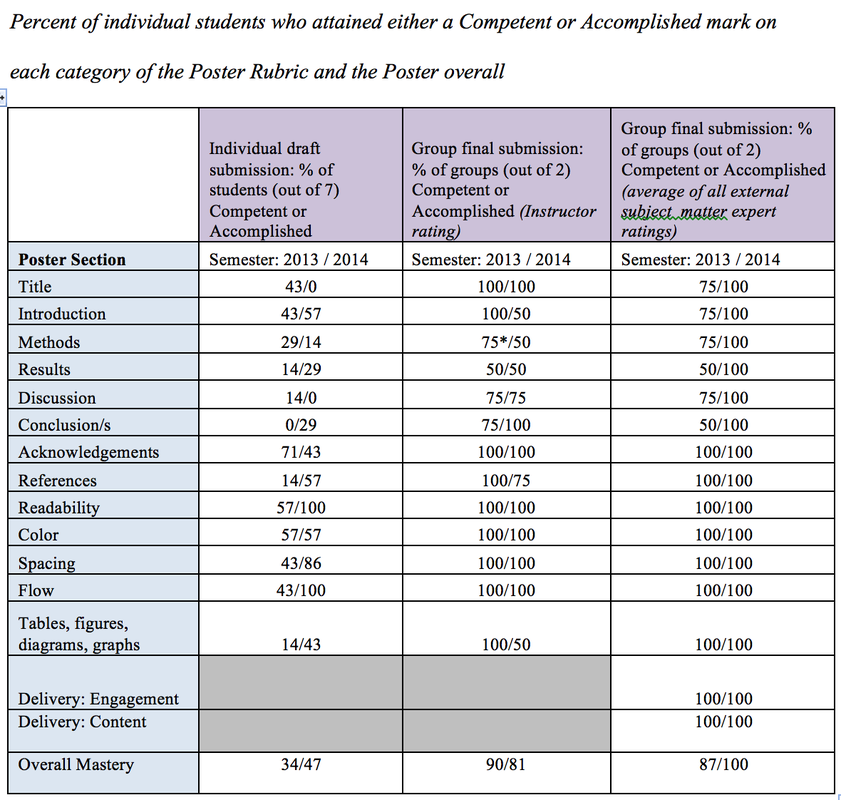Mastery Data that include semesters post 2018
Rachel will share about the Capstone Course at the Original Lilly Conference on College Teaching!!
Capstoners proposal writing skills have improved over time! Fall of 2020 was our highest achievement and this is hypothesis-generating because much of the world was singing the woes of COVID. In Capstone, we were studying COVID, doing computational research, collaborating with the Wyoming Department of Public Health and having time for some of the most extraordinary achievement of our lives.
Our expert assessors have also deemed our products a success! On every section of the final presentation over eight semesters, student teams have achieved no worse that 77% mastery. Moreover, over every semester, our community partners have been 100% satisfied with the Capstoners' professionalism and relevance of their solutions.
On small-group instructional diagnoses (SGIDs), Capstone students have related that they find the opportunity to cultivate science skills (teamwork and science communication), and the opportunity to do authentic community-based problem-solving to be unique. Early in the semester, they worry about time management, breadth of projects/literature, and the fear of missing skillsets. At the semester’s end, students express that they want more: more time (discussed in 19 SGIDs), more credit (discussed in 6 SGIDs) and more semesters (discussed in 3 SGIDs).
A group of Capstone honors students interviewed twelve prior Capstone students and the alumni related that they felt they had acquired teamwork, professional, problem-solving and lab skills in Capstone. The felt they had undergone internal growth - gaining confidence, growth mindset, self-actualization and a humanized view of science (Armitage, Moncrief and Radosevich, unpublished Honors thesis).
Our expert assessors have also deemed our products a success! On every section of the final presentation over eight semesters, student teams have achieved no worse that 77% mastery. Moreover, over every semester, our community partners have been 100% satisfied with the Capstoners' professionalism and relevance of their solutions.
On small-group instructional diagnoses (SGIDs), Capstone students have related that they find the opportunity to cultivate science skills (teamwork and science communication), and the opportunity to do authentic community-based problem-solving to be unique. Early in the semester, they worry about time management, breadth of projects/literature, and the fear of missing skillsets. At the semester’s end, students express that they want more: more time (discussed in 19 SGIDs), more credit (discussed in 6 SGIDs) and more semesters (discussed in 3 SGIDs).
A group of Capstone honors students interviewed twelve prior Capstone students and the alumni related that they felt they had acquired teamwork, professional, problem-solving and lab skills in Capstone. The felt they had undergone internal growth - gaining confidence, growth mindset, self-actualization and a humanized view of science (Armitage, Moncrief and Radosevich, unpublished Honors thesis).
The One-page document below was created by 2018 Capstone student and now Data Scientist Ella DeWolf!
| capstone_one_pager_ai_final.pdf |
Mastery Data for the pilot years of Capstone are published in Purdue's Interdisciplinary Journal of Problem-Based Learning
docs.lib.purdue.edu/ijpbl/vol12/iss1/8/
docs.lib.purdue.edu/ijpbl/vol12/iss1/8/




